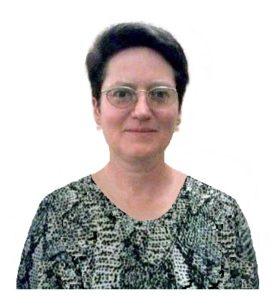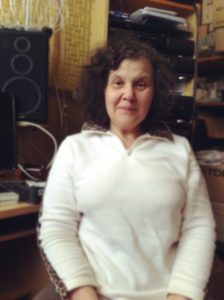Research grants 2016
The HREC Research Grants Competition is held annually to support academic research on the Holodomor, the publication of research results, the preservation of materials, and the organization of and participation in academic venues. Each year, a new thematic focus is established, though proposals for other topics are considered. The applications are reviewed by a committee of scholars and HREC associates.
-
2016 HREC Research Grants Competition
In 2016, HREC held its third research grants competition. This year’s competition focused on support of research, preservation and publication of materials, as well as organization of and participation in conferences and workshops related to the Holodomor. Seventeen grants were awarded in amounts ranging from $1,043 to $6,000.
Individual Projects 2016
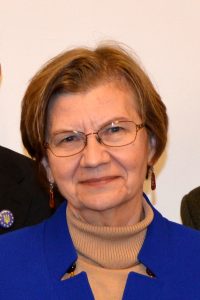
Lana Y. Babij
Sorting out the photographic evidence of famine in Ukraine, 1932-1934, as first used in English language publications, 1932-1939
This research will lay the foundation for the first comprehensive visual resource on non-Soviet photographic evidence of the 1932-34 famine in Ukraine. The aim is to identify, authenticate, and classify famine-related photographs first used in English-language publications. The focus is on photographs not sanctioned by Soviet officials but claimed to have been taken by non-Soviet visitors in 1930-1934 — businessmen, representatives of governments and non-governmental organizations, and journalists. Photos attributed to the Holodomor that were in actuality from other famines will be identified, and accusations of inauthenticity will be addressed.
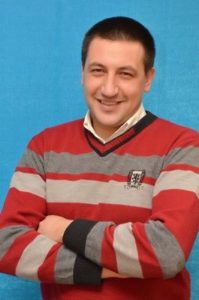
Yaroslav Faizulin
Holodomor 1932-1933: Diaries of the Repressed
The project entails research in the archives of the Security Services uncover, analyze, document, and publish diaries of individuals who lived during the Holodomor. Diary entries were used as evidence for the imprisonment of their authors by Soviet authorities, who considered any kind of documentation of the events of the Holodomor as counterrevolutionary. These diaries are particularly useful for illuminating everyday life during the Holodomor, strategies for survival, and attitudes towards the Soviet authorities.

Kristina Hook
Providing new theoretical tools to incorporate the Holodomor into broader discussions of genocide
Although genocide has been defined in international law, no standard scholarly definition exists. This project will provide new theoretical tools for scholars seeking to incorporate the Holodomor into broader discussions of genocide. While previous literature on the Holodomor has largely focused on Soviet starvation policies as a genocidal and political tool, and therefore a method of violence, the project intends to reorient the question of genocide in Ukraine, focusing on the intent of the violence.
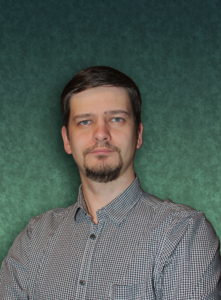
Mykola Gorokh
The Establishment and operation of the Odesa Regional “Torgsin” Office (1930-1936)
The project focuses on Soviet Torgsin stores, where peasants would exchange jewelry for food in a bid for survival during the Holodomor. The focus of the project is the Torgsin regional office in Odesa, which was considered among the most important in the network given its location in a large port city.
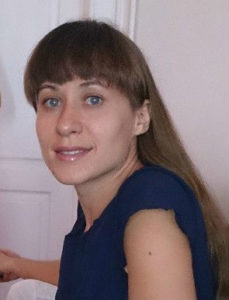
Yulija Hryshchenko
The impact of collectivization and Famine on the Bulgarian minority in Soviet Ukraine
The project will study the impact of collectivization and the famine on the Bulgarian minority in Soviet Ukraine during the 1920s and 1930s. The project will examine how this minority was affected by broader socio-economic and political changes occurring throughout the Soviet Union, and will discuss the demographic and psychological repercussions.
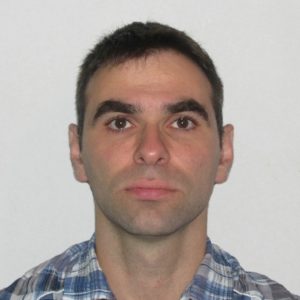
Artem Kharchenko
Forcible transfers of children in the Ukrainian Soviet Socialist Republic: 1928-1935
The project aims to investigate the treatment of children by Soviet authorities during the 1928-1935 period. The project will analyze the forcible transfer of children to orphanages, which according to the 1948 Convention can be considered an act of genocide. The research will draw upon intersectionality theory, in order to consider the multiple factors that contributed to the social repression of the population, and in particular children, including language, religion, and culture.
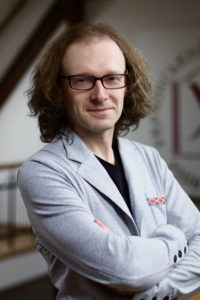
Vitaly Klymchuk
National PTSD and posttraumatic growth: echoes of the trauma of famine in the psyches of modern Ukrainians
The project pursues the hypothesis that a national post-traumatic stress disorder (PTSD) exists among Ukrainians as a consequence of the Holodomor. The project will consider the psychological implications of the longstanding policy of silence and denial that persisted after the famine. The research will also investigate the psychological consequences of other traumas endured by Ukrainians, including repressions, wars, and revolutions.
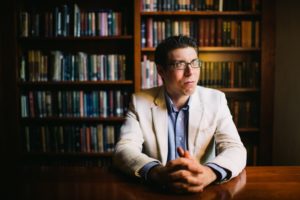
Nicholas K. Kupensky
Margaret Bourke-White and the Ukrainian Famine: The scenarios to Eyes on Russia (1993)
This project examines the American photographer Margaret Bourke-White’s unmade film, Eyes on Russia (1932-1933). Bourke-White was one of many English-speaking journalists who visited Zaporizhzhia in October 1932 to witness the opening of the Dnieper Hydroelectric Station. While most of her colleagues revealed that they had seen evidence of famine, extant scenarios to Eyes on Russia reveal that Bourke-White intended to celebrate the effects of the First Five-Year Plan on agriculture during the period when the famine was at its worst. This project will establish what she likely witnessed and why she never addressed the existence of the famine in her art.
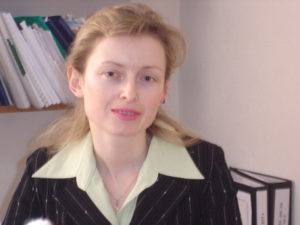
Nataliia Levchuk
Monthly variations of mortality in 1933 in Ukraine’s largest cities: Kyiv, Kharkiv, and Odesa
The project will research monthly variations in mortality rates in the cities of Kyiv, Kharkiv, and Odesa in 1933. The project intends to produce a more developed understanding of the dynamics of hunger among urban residents in Ukraine. Research questions will include the following: To what extent do mortality rates during the Holodomor in these urban centres differ from those in non-crisis years? Did a rise in deaths occur simultaneously in all three cities? Are there similar patterns in the monthly dynamics of mortality among the three cities? How do the causes of death differ across monthly periods and cities during this period?

Kassandra Luciuk
Danylo Lobay, leader in the Ukrainian Canadian progressive-socialist movement and the Ukrainian Labour Farmer Temple Association
This project seeks to situate Danylo Lobay, a leader in the Ukrainian Canadian progressive-socialist movement and the affiliated Ukrainian Labour-Farmer Temple Association (ULFTA), within a larger context of Holodomor awareness in Canada during the 1930s and 1940s. In March 1935, Lobay addressed his community, concerned by the denial of the Holodomor by Communist Party of Canada and ULFTA officials. A comprehensive study of how Lobay’s revelations affected the Ukrainian Canadian community has yet to be written. Ultimately the project will illuminate how the Holodomor was talked about, debated, and eventually commemorated by Ukrainians in Canada.
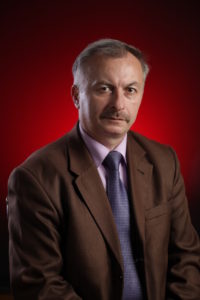
Gennadij Mahorin
Peasant resistance to soviet policy: 1932-1933
The project will research peasant resistance to Soviet policy in 1932 and 1933. In particular, the project will compare efforts of resistance during this period with those of previous national liberation struggles in order to illuminate aspects of continuity in Ukrainian national aspirations.
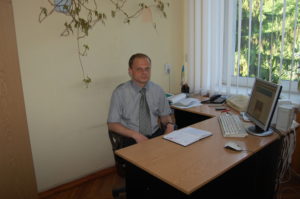
Yarosalv Papuha
Western attitudes toward to Holodomor
The project will analyze Western attitudes towards the Holodomor in order to illuminate varying positions among Western countries. In particular, the project will draw upon documents in Polish and Ukrainian archives related to the initiatives of Ukrainian emigres to lobby Western governments to recognize the Holodomor.

Ukrainian Canadian Research and Documentation Centre
Digitization of ‘Sharing the Story’ Interview
The project will digitize interviews conducted with Holodomor survivors living in Canada. The interviews were conducted by Orest Zakydalsky and Ariadna Ochrymovych as part of a joint project of the Ukrainian Canadian Congress and the Ukrainian Canadian Research and Documentation Centre titled Sharing the Story. The interviews were recorded on 138 Mini DV/DVCAM video cassettes, which need to be reformatted and digitized in high definition in order to make them useable and accessible components of the UCRDC Oral History Archives.
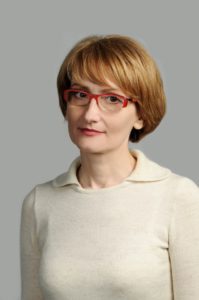
Iryna Zakharchuk
The inversion of cultural roles: Enemies and victims in Ukrainian literature during the era of collectivization and the Famine
The project seeks to develop a new analytical framework for understanding social experiences during the era of collectivization and the Famine through the study of Ukrainian literature from that period, a powerful force of social transformation. Moreover, literature’s moral and psychological narratives can further illuminate an era’s cultural practices and norms. In particular, this project will investigate oppositional attitudes in the literature of this period, namely, between ‘enemies’ and ‘victims,’ as a means of uncovering the dynamics of social order under collectivization and the Famine.
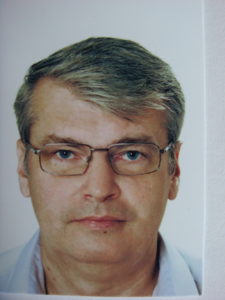
Nikolai Zerkal
Policies of collectivization and industrialization in Southern Ukraine
The project will analyze the Bolshevik leadership’s policies of collectivization and industrialization in the southern oblasts of Ukraine within the broader context of military and industrial modernization in the region, The projecgt will illuminate the socio-economic, political, and psychological traumas endured by the peasant population, including death from starvation, the destruction of agricultural production, and the prevalence of psychological and physical intimidation used to discourage resistance to the Stalinist regime.
Collaborative Projects 2016
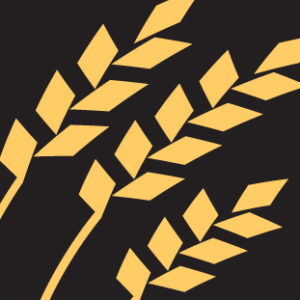
Lumey Research Team
Relation between famine severity at time of birth and diabetes risk
Using data from the Ukrainian national diabetes registry up to 2008, the Lumey Research Team has shown a relation between famine severity at the time of birth and type 2 diabetes risk in old age. These findings make clear that conditions in a mother’s pregnancy affect the health of her children. This project will bring together research groups from the US, The Netherlands, and Ukraine to exchange information and to prepare proposals for more extended studies to be submitted to national and international research institutions for funding.
Olha Vasylenko
Tetiana Markovska
Holodomor in academic musical compositions of Ukraine’s contemporary composers
The project, co-organized by two colleagues at the R. M. Glière Kyiv Institute of Music, will illuminate an unexplored period of post-totalitarian art, language, and music. The project will document developments in music composition at the turn of the twenty-first century that address the topic of the Holodomor and to produce video presentations of these compositions. The compositions span a wide range of genres and were produced by composers including Ivan Karabyts, Yevhena Stankovych, Myroslav Skoryk, and Viktor Kaminsky.
